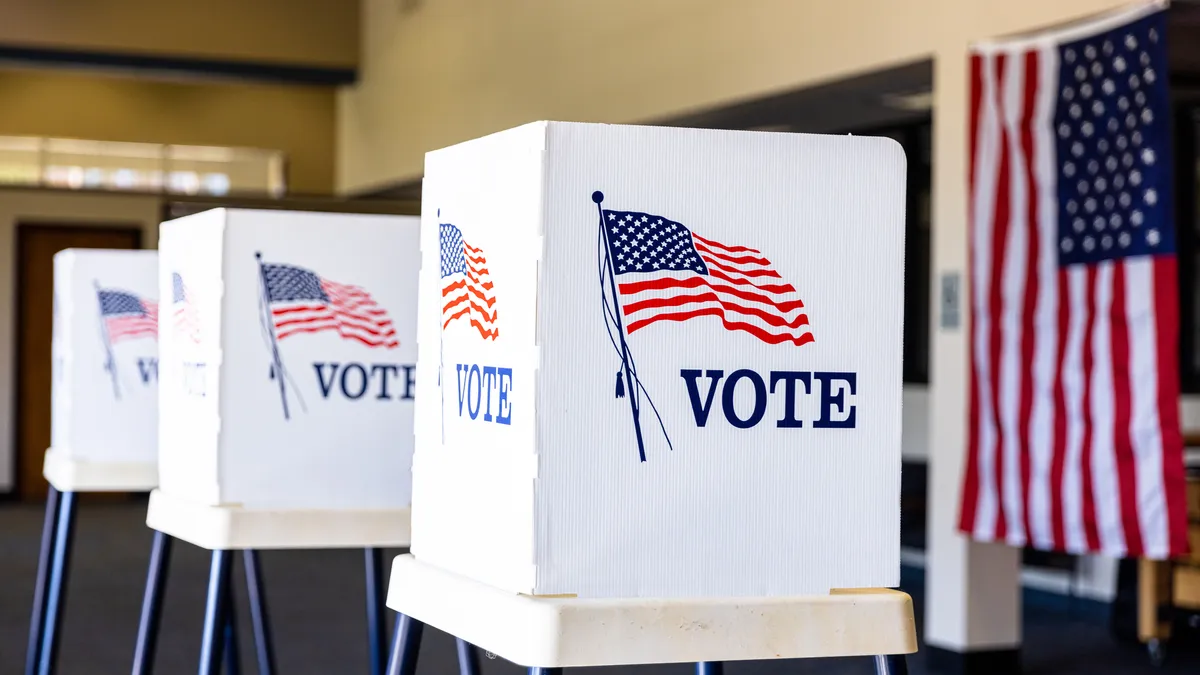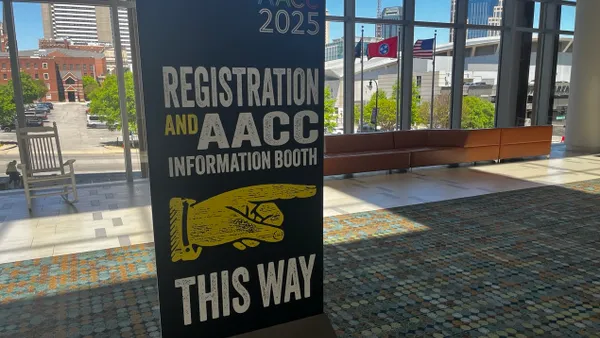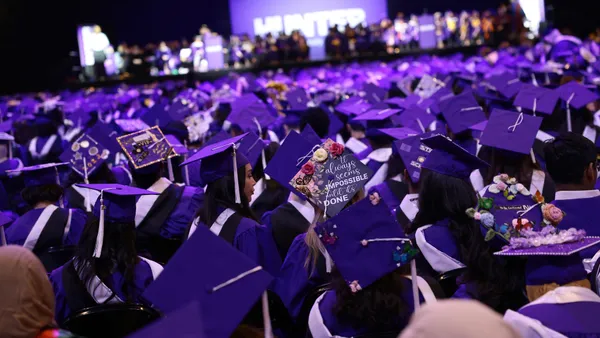Dive Brief:
- Colleges can encourage their students to vote in upcoming elections by building coalitions, setting goals for democratic engagement and providing voter registration information on campus, according to a report released Wednesday.
- The recommendations come from Voter Friendly Campus, an initiative started by Fair Election Center’s Campus Vote Project and NASPA-Student Affairs Administrators in Higher Education to help colleges bring together their employees and students to boost electoral engagement. This year, the group designated 262 colleges as Voter Friendly Campuses, with 71 institutions joining the program for the first time.
- The report calls out several challenges colleges may encounter, including new restrictive election laws and a belief among some students that their votes don’t matter.
Dive Brief:
States have recently seen a “flurry of both voter friendly and anti-voting legislation,” according to the report.
On the one hand, Massachusetts passed a law last year that gives voters more time to register, while New York recently passed legislation that expands access to mail-in voting.
But Idaho lawmakers earlier this year passed a bill that would prohibit student ID cards from being used to verify identification for voting. Ohio recently passed similar legislation that prevents students from using their tuition or utility bills as forms of identification.
In all, more than a dozen states have introduced proposals that would make it more difficult for college students to cast their ballots, the report said.
Still, colleges can take actions to boost student voter participation.
One way is by building coalitions of employees and students devoted to boosting civic engagement. But the report recommends that these coalitions develop plans in case they run into major setbacks, such as losing funding or faculty and staff leaders.
“There continues to be sudden shifts in higher education, including major staffing changes, furloughs, and layoffs,” the report said. “These shifts have resulted in formerly active coalition leaders no longer having the ability or capacity to support the work.”
The report cites the University of Mary Washington, a public liberal arts college in Virginia as a model example. The university has a coalition that breaks a team of 10 students into three groups devoted, respectively, to social media, events and voter registration.
It’s also key for coalitions to set clear goals, according to the report. For instance, Mesa Community College, in Arizona, has set the goal of improving student turnout for the 2024 presidential election by creating polling sites at each of its campuses.
Voter registration efforts are also important.
The report points to efforts at the University of North Carolina at Pembroke as another example for other colleges to follow.
In spring 2022, UNCP Votes, a civic engagement group, sent volunteers to popular campus activities, such as welcome week and sporting events, to promote voter registration. The college also included voter registration forms in campus move-in packets.
Through those efforts, UNCP Votes and its partners secured more than 800 voter registration forms, according to the report.
Clarification: This article has been updated to include which organizations started the Voter Friendly Campus project.















